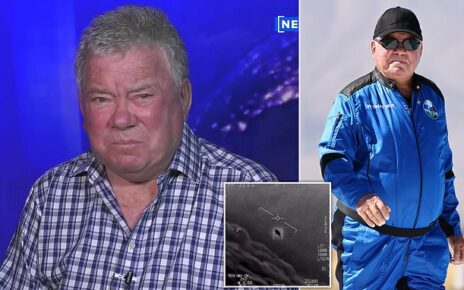Key points
- Biosecurity zones were introduced in Australian customs from midnight to stop an outbreak of foot and mouth disease in Indonesia from reaching our shores.
- Travellers from Indonesia are expected to clean their shoes and walk over sanitation mats under the tough new biosecurity rules.
- But holidaymakers arriving back in Melbourne on Saturday said there was little additional scrutiny.
Holidaymakers returning from Indonesia say there was little scrutiny as they passed through customs on Saturday, despite tough new biosecurity rules to thwart foot and mouth disease coming into force overnight.
The federal government created new biosecurity zones in Australian airport customs from midnight on Friday for passengers flying in from Indonesia, where the livestock disease is running rampant.
The changes were announced after Agriculture Minister Murray Watt learned some travellers had attempted to evade screening. People flying would have to clean their shoes and walk over sanitation mats – the toughest biosecurity rules ever introduced at Australian airports.
But on Saturday morning, weary travellers toting surfboards through Melbourne Airport reported few additional biosecurity measures, aside from an extra announcement on their flight from Denpasar.
All passengers spoken to by The Age said they were not asked to clean their shoes in the sanitation foot mats while going through customs, nor were they asked if they had cleaned the dirt from their belongings.
Geelong pair Georgie Allen and Sean Holroyd returned to Melbourne on a flight from Denpasar on Saturday. Credit:Scott Barbour
None of the passengers saw being taken out of the Melbourne customs line for additional biosecurity checks.
Georgie Allen and Sean Holroyd, from Geelong, said there was no extra information given to them about the virus from customs officers on Saturday morning.
While Holroyd said he felt many travellers returning to Australia were still “blasé” about foot and mouth disease, he and Allen had taken a cautious approach.
“We just left all our shoes over there that were dirty,” Allen said.
A pamphlet handed out to travellers on arrival in Australia urged them not to bring meat or dairy products into Australia and to clean any shoes and clothing used in rural areas. The flyer warned of $2664 fines for breaching biosecurity laws and the potential for tourists to be denied entry into Australia.
The detection of foot and mouth disease in Bali has triggered fears of a catastrophic local outbreak, with more than 120,000 people travelling to the island from Australia in June alone, according to local tourism authorities.
Just one positive case of the disease – which causes lesions and lameness in livestock – on an Australian farm could shut the $27 billion livestock export trade down for months or even years. The federal government has estimated the total cost of a major outbreak to be $80 billion.
Julie and Tony Comopoulos at Melbourne Airport after arriving back from Bali on Saturday morning.Credit:Scott Barbour
At the airport on Saturday, Melbourne woman Julie Comopolous said she spotted some customs officers in Melbourne’s international terminal wearing “the full garb” of personal protective equipment.
Comopolous said she’d kept abreast of the increasing vigilance around foot and mouth disease at home, washing all her shoes before getting on the Bali flight.
“I think they [border security officers] are doing all the right things,” she said.
“We were asked on the plane to make sure we filled out the forms correctly. We just ticked all the boxes to make sure we were in the right place if they wanted to speak to us.”
Bella Curtis (left) and Charlotte Powell returned to Australia from a girls’ trip to Bali on Saturday.Credit:Scott Barbour
Melbourne woman Bella Curtis, returning home after 10 days in the Bali sun as part of a girls’ trip, she was “surprised” by the low-key biosecurity response on arrival in Australia.
She said they threw out a number of pairs of shoes before returning.
“It wasn’t crazy … there was just an announcement and we filled out a form,” she said.
While unions warned on Friday that the new biosecurity demands would put extra pressure on agriculture biosecurity officers and could extend already long international customs delays, no travellers The Age spoke to reported excessive wait times.
With Ben Preiss
Our Breaking News Alert will notify you of significant breaking news when it happens. Get it here.
Most Viewed in National
From our partners
Source: Read Full Article




